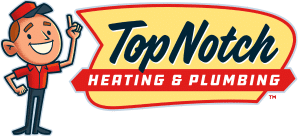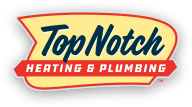Air Filters 101: Finding the Best Air Filter for Your HVAC System
Choosing the best air filter for your HVAC system is one of the most effective ways to improve your home’s air quality. Contaminants like dust, mold spores, pet dander, and bacteria can circulate through your home’s HVAC system, potentially causing respiratory issues, allergy flare-ups, and other health problems.
With winter often bringing dry air and increased time spent indoors, having the right air filter in your HVAC system can improve your home’s air quality, reduce allergens, and even keep your heating system running efficiently. Whether you’re looking to upgrade your existing filter or replace it entirely, understanding the different types of air filters available will help you make an informed decision.
Signs You Need to Replace Your Air Filter
Recognizing when to replace your air filter is crucial for maintaining your HVAC system and improving your indoor air quality. Here are some common signs that it’s time for a replacement:
- Increased Allergies or Respiratory Issues. If you or your family members start to experience more frequent allergy symptoms or respiratory problems, your air filter may no longer be effectively capturing harmful particles.
- Poor Airflow. If your HVAC system is struggling to push air through your ducts, it may be a sign that your air filter is clogged and restricting airflow.
- Visible Dirt or Dust Around Vents. If you notice dust accumulating around your vents or in your home, it’s a sign that your filter isn’t catching all the particles in the air.
- Increased Energy Bills. A clogged air filter forces your HVAC system to work harder to circulate air, leading to higher energy consumption and increased utility bills.
- Dirty or Discolored Filter. Over time, filters become dirty, and the filter media may change color. If your filter looks significantly dirty or clogged, it’s time for a replacement.
How to Maintain Your Air Filters for Maximum Efficiency
Regular maintenance is key to getting the most out of your air filter and keeping your HVAC system running smoothly. Here are some tips for maintaining your air filters:
- Check Filters Regularly. Even if you have a high-quality filter, it’s important to check it monthly to ensure it hasn’t become clogged. We recommend to replace filters every 1-3 months, depending on the type.
- Clean Reusable Filters: If you use a washable filter, be sure to clean it regularly. A simple rinse under cold water can remove accumulated dust and dirt, restoring its efficiency.
- Ensure Proper Installation. Make sure your filter is installed correctly. Improper installation can reduce its efficiency, allowing particles to slip through the gaps and reducing the quality of your indoor air.
- Consider Upgrading: If you find yourself replacing filters more frequently or dealing with allergy symptoms, it might be time to upgrade to a higher-efficiency filter, such as a HEPA or electrostatic filter.
Types of Air Filters and Their Benefits
Choosing the best air filter for your HVAC system is essential for maintaining a clean, healthy indoor environment. Here’s a breakdown of the most common types of air filters, highlighting their benefits and potential concerns. This will help you make an informed decision based on your home’s specific needs.
Fiberglass Filters
Fiberglass filters are the most basic and economical option, ideal for households with minimal air quality concerns.
Benefits
- Affordable. Fiberglass filters are budget-friendly, making them a great choice for homeowners on a tight budget..
- Basic Filtration. These filters are effective at catching larger particles like dust, dirt, and hair.
- Lightweight and Easy to Install. Their simple design makes them easy to install and replace, saving you time and hassle.
Concerns
- Low Efficiency: While they trap large particles, they don’t capture finer contaminants like dust mites, mold spores, or pet dander.
- Frequent Replacement: Fiberglass filters need to be replaced more often than higher-end filters, leading to additional costs over time.
- Limited Health Benefits: Not suitable for households with allergy or asthma sufferers due to their limited filtration capability.
Pleated Filters
Pleated filters offer better filtration than fiberglass filters, providing a wider surface area for capturing particles.
Benefits
- Better Filtration. The pleated design increases the surface area, allowing the filter to capture more particles.
- Longer Lifespan. Pleated filters typically last longer than fiberglass filters before requiring replacement. This makes them a more economical option in the long run.
- Moderately Priced. Pleated filters strike a good balance between cost and performance. They offer improved air quality without a significant price increase.
Concerns
- May Clog Faster. In homes with pets or heavy dust, pleated filters can clog more quickly, reducing their effectiveness.
- Moderate Energy Use. Higher-efficiency pleated filters can reduce airflow, causing HVAC systems to work harder and potentially increasing energy costs.
- Can Be Too Dense. If the MERV rating is too high for your system, pleated filters may restrict airflow, reducing HVAC efficiency.
HEPA Filters
HEPA (High-Efficiency Particulate Air) filters are known for their superior ability to capture airborne particles.
Benefits
- Superior Air Quality.
HEPA filters capture up to 99.97% of airborne particles, including pollen, pet dander, dust mites, and mold spores. These filters provide the highest level of filtration. - Ideal for Allergy Sufferers.
They are perfect for homes with asthma or allergy sufferers. They trap even the smallest particles that can trigger health issues. - Improves Overall Health.
HEPA filters improve indoor air quality by removing harmful allergens and pollutants, creating a healthier home environment.
Concerns
- Higher Cost.
HEPA filters tend to be more expensive than fiberglass or pleated filters. - Reduced Airflow.
Their dense structure can cause airflow restriction, making your HVAC system work harder and potentially leading to higher energy costs. - Maintenance.
Due to their high-efficiency nature, HEPA filters may need more frequent replacement. In households with heavy air contamination (e.g., multiple pets or smokers) these filters should be replaced even more frequently.
Electrostatic Filters
Electrostatic filters use static electricity to attract particles, offering a reusable, eco-friendly option for filtration.
Benefits
- Reusable. Electrostatic filters are washable and can be reused multiple times. This makes them a sustainable and cost-effective option in the long run.
- High Efficiency. They effectively capture dust, dirt, pollen, and other airborne particles, making them suitable for homes with moderate air quality concerns
- Environmentally Friendly. Since they don’t need to be disposed of after each use, they contribute less to landfill waste.
Concerns
- Regular Cleaning Required. To maintain their efficiency, electrostatic filters must be cleaned regularly, which can be a bit more time-consuming compared to disposable filters.
- Moderate Filtration. While effective, they may not capture the finest particles as well as HEPA filters, making them less ideal for homes with severe allergies or respiratory concerns.
- Upfront Cost. Electrostatic filters are typically more expensive than disposable filters, though the higher initial cost is offset by their reusability.
Activated Carbon Filters
Activated carbon filters are designed to remove odors and gases, in addition to filtering out larger particles.
Benefits
- Odor Removal. These filters excel at removing odors, such as cooking smells, pet odors, and smoke, making them an excellent choice for homes with strong or persistent smells.
- Removes Chemical Pollutants. Activated carbon filters can capture volatile organic compounds (VOCs) and other gaseous pollutants, improving the air quality in your home.
- Improves Air Freshness. By removing odors, activated carbon filters help maintain a fresher-smelling home, ideal for spaces prone to mustiness or cooking odors.
Concerns
- Limited Particle Filtration. While they are great for odor and chemical removal, activated carbon filters aren’t as effective at trapping dust, pollen, or other fine particles.
- Needs Regular Replacement. Over time, the carbon’s absorption capacity will decrease, meaning the filter needs to be replaced regularly to maintain its effectiveness.
- Not Ideal for Allergy Sufferers. If fine particle filtration is your priority, activated carbon filters might not provide sufficient relief for those suffering from allergies or asthma.
Choosing the best air filter for your HVAC system depends on your home’s needs, your budget, and your family’s health. Whether you’re looking for a basic, affordable filter or a high-efficiency option for allergy relief, there’s a filter type suited to your needs.
If you’re still unsure about which filter is best for your home, Top Notch Heating and Plumbing can help guide you to the right solution. We also offer a range of filters for purchase online, making it easy to find the perfect match for your HVAC system. If you have any questions or need assistance selecting the right air filtering system for your home, don’t hesitate to contact us today for expert advice and personalized recommendations on air filters.



